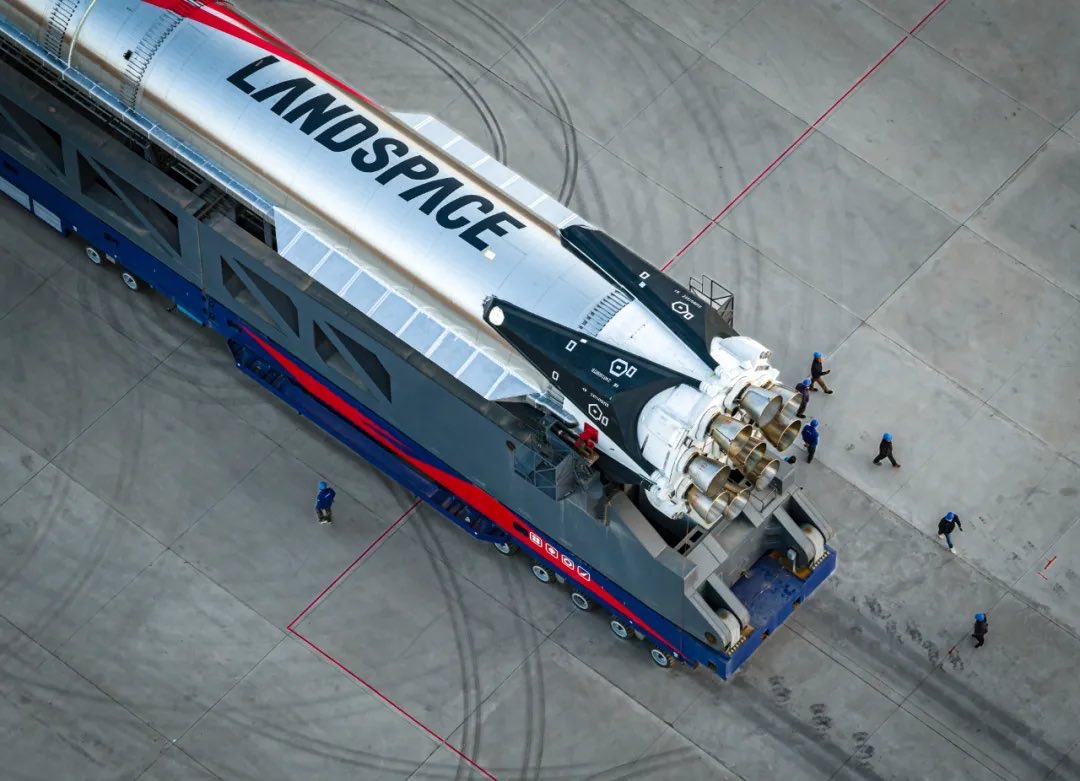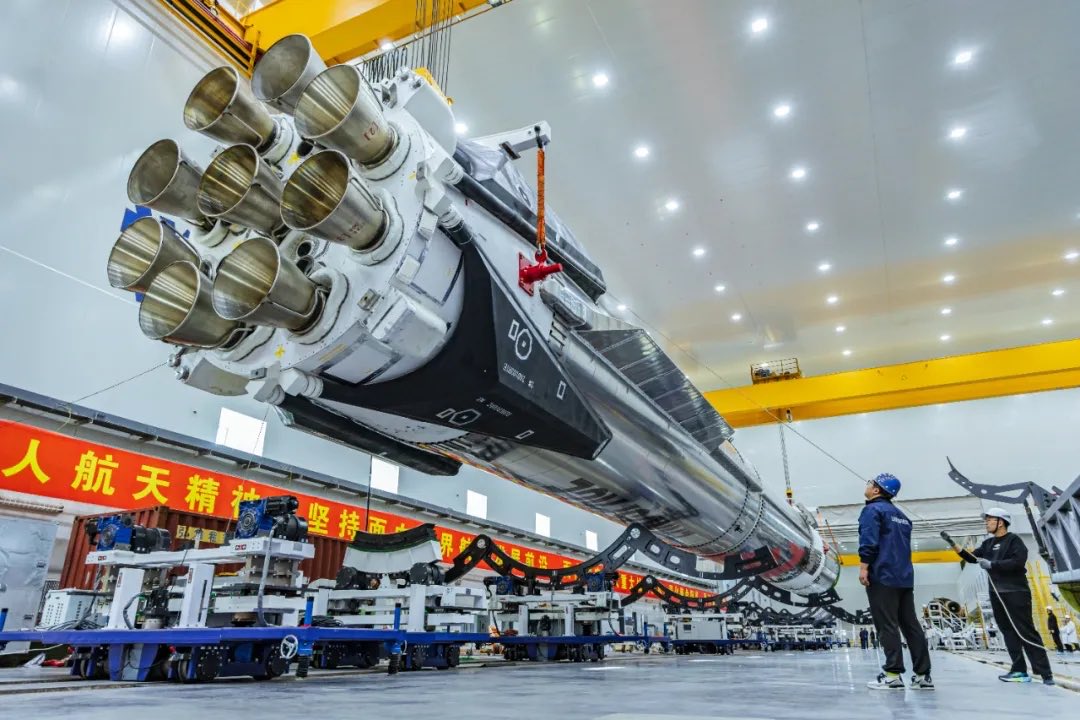The Chinese company LandSpace announced that its Zhuque-3 reusable rocket had successfully passed a series of important ground tests. This paves the way for its first orbital flight and attempt at stage return.
 Zhuque-3 rocket. Source: LandSpace
Zhuque-3 rocket. Source: LandSpace
LandSpace began operations in 2015. After early experiments with solid-fuel rockets, it switched to liquid fuel, focusing on methane. In 2023, the Zhuque-3 rocket it built became the first methane-powered launch vehicle in history to reach orbit.
LandSpace has begun work on its next major milestone: creating a reusable rocket that will be comparable in performance to the legendary Falcon 9. It was designated Zhuque-3.
The Zhuque-3 will be 76.6 meters long and have a takeoff weight of 660 tons. It will be capable of launching up to 21 tons of cargo into orbit in a fully disposable configuration and up to 18.3 tons in a configuration with the first stage landing on a barge in the ocean. Thus, its characteristics resemble those of Falcon 9. The key differences are that Zhuque-3 has a steel body and runs on methane fuel.
 Zhuque-3 rocket. Source: LandSpace
Zhuque-3 rocket. Source: LandSpace
According to LandSpace, between October 18 and 20, 2025, Zhuque-3 completed the first stage of preparations for its debut flight. The tests included a full-scale fueling rehearsal and static tests on the launch pad. They were successful, becoming the last major test of the rocket on the ground before its first launch.
The rocket will then undergo a planned vertical integration rehearsal, after which it will return to the technical area for inspection and maintenance in preparation for the upcoming flight, during which LandSpace will attempt to land its first stage. It is scheduled for early 2026.
Earlier, we reported on China’s plans to establish mass production of reusable rockets.
Part of the Universe Space Tech team since 2017. Focuses on interplanetary missions, the history of space exploration, rocket launches, and scientific discoveries in both near and deep space. Over the years, he has written dozens of materials — from fact-checked news to deep-dive analyses.
His fascination with space began in childhood and eventually became his professional direction. He joined Universe Space Tech to tell readers about modern space events in a clear and engaging way. His writing combines accuracy, structure, and deep respect for scientific knowledge.